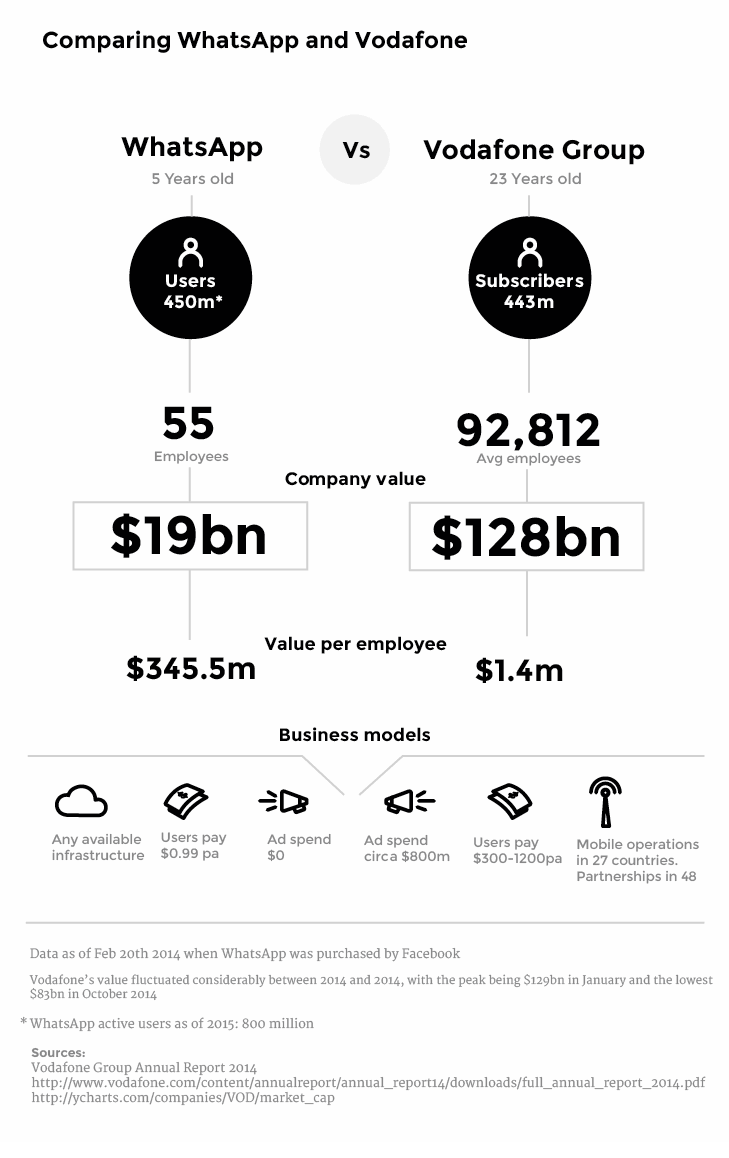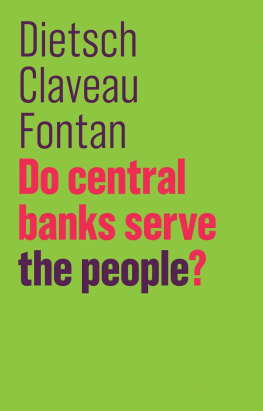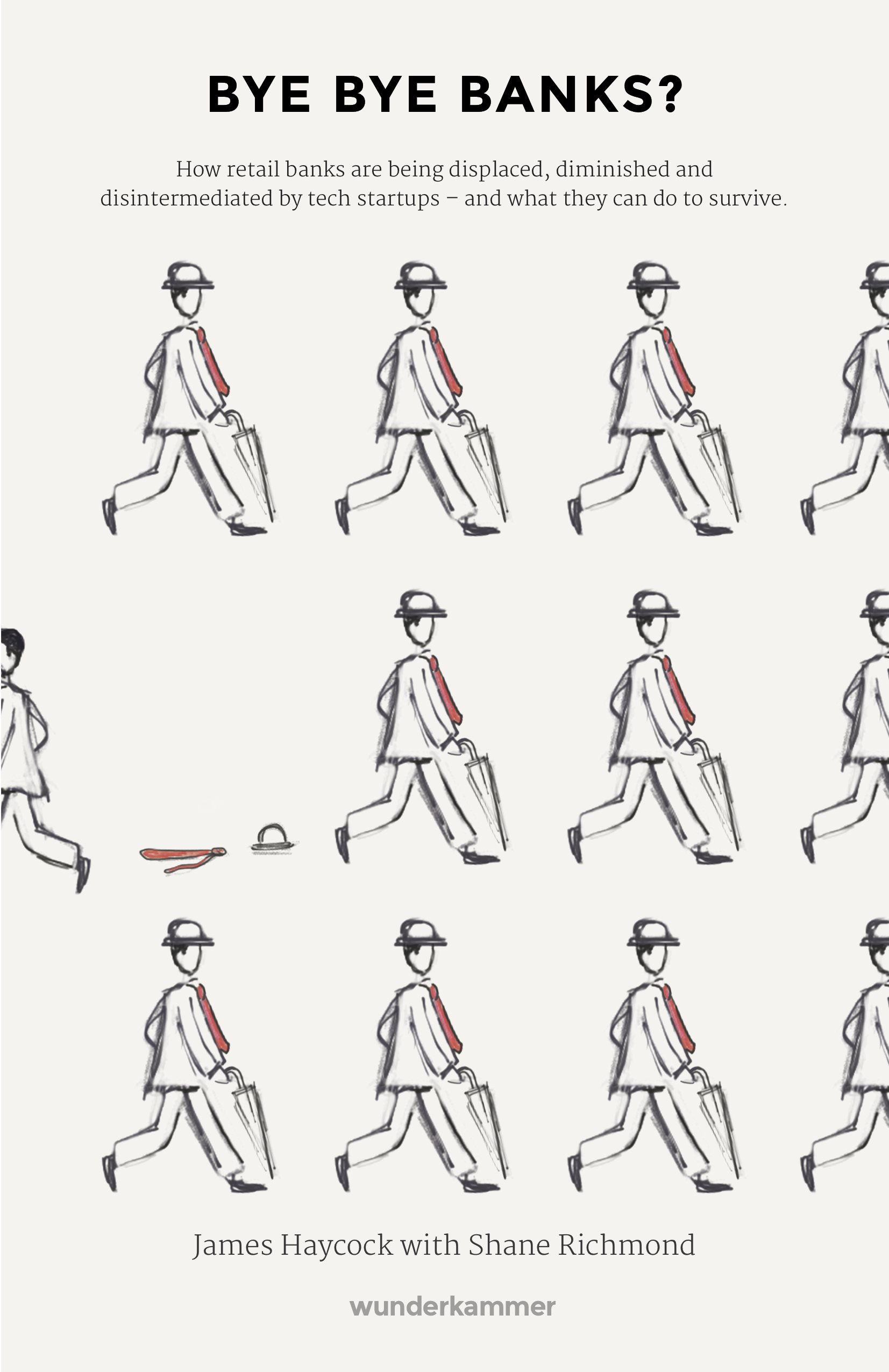
First published in the United Kingdom in 2015 by Wunderkammer, an imprint of Adaptive Lab.
Adaptive Lab, 2015
The moral copyright of Adaptive Lab to be identified as the author of this work has been asserted by it in accordance with the Copyright, Designs and Patents Act of 1988.
All rights reserved. No part of this publication may be reproduced, sorted in a retrieval system, or transmitted in any form or by any means, electronic, mechanical, photocopying, recording or otherwise without the prior permission of the copyright owner and the publisher of this book.
ISBNs
Ebook: 978-0-9932206-3-0
Paperback: 978-0-9932206-4-7
Infographics by Katy Jackson & Ash Patel
Adaptive Lab
9193 Great Eastern Street
London
EC2A 3HZ
www.adaptivelab.com
Contents
Acknowledgements
A huge thanks to the whole Adaptive Lab team for supporting the project and giving valuable input throughout, but especially to Katy and Ash for the brilliant artwork and Emily and Daniel for patience as several deadlines slipped past.
Thanks also to Shane Richmond for collaborating on the book and Toby Mundy for encouraging me to kick the project off.
Alessandro Hatami, John V Willshire, Lee Sankey and Pritpal S Tamber I very much appreciate you all for taking the time to give feedback, critique and direction.
Thank you to Abi for all your support and putting up with me locking myself away at weekends. Mum and Dad: thank you both for the valuable feedback.
Contributions from experts in the industry
The thinking in this book has come together from both personal analysis and consideration, and also by speaking to some very smart people within the industry.
To support, and challenge, the argument outlined in this book we conducted one-on-one interviews with a number of senior banking executives (details below) and a survey with 110 execs at Director through to C-Suite level in well-known Financial Services companies. The survey was conducted in January 2015 with leading research agency, ResearchNow.
In addition, a series of round-table dinners we hosted between January 2014 and the time of going to print on the topic of change and innovation in banking have also helped inform the book. These dinners were attended by senior executives from well-known FS companies and startups including, but not limited to: AirPlus, Azimo, Barclaycard, Barclays, Experian, Fiserv, GoodBank, Guevara, Lloyds, MarketInvoice, Mondo, NewDay, Osper, Squirrel, Stripe and Virgin Money. As an aside, if youre interested in finding out more about the dinners contact:
With respect to the one-on-one interviews, thanks to those who can be named:
Alessandro Hatami , Founder of Pacemakers and former Digital Payments and Innovation Director at Lloyds Banking Group
Allan Kite , Director of Operations Architecture, NewDay
Anne Boden , CEO, Starling Bank and former COO, Allied Irish Bank
David Birch , Director, Consult Hyperion and author of Identity Is The New Money
Ian Bromwich , Managing Director Digital, Barclaycard
James Barty , Head of European Equity Strategy, Bank of America Merrill Lynch, former strategy Director, British Bankers Association
Lee Sankey , former Group Design Director, Barclays
Richard G Brown , Executive Architect, Banking and Financial Markets, IBM and cryptocurrency advisor
Tom Hopkins , Product Innovation Director, Experian Consumer Services and author of Unthinkable
Travers Clarke-Walker , CMO, Fiserv International and former MD Payments and Innovation, Barclays
And thanks also to those who chose to remain anonymous (must be something to do with the title of the book!) from other well-known banks, including Credit Suisse, Barclays Wealth and Santander.
James Haycock, 2015
About the authors
JAMES HAYCOCK Managing Director Adaptive Lab
James Haycock is the founder and MD of Adaptive Lab, a pioneering digital products and services agency.
At Adaptive Lab he has grown a team of impressive and inspiring problem solvers and product builders and, alongside them, works with forward-looking leaders to tackle disruptive problems at some of the worlds largest corporations across sectors including finance, telco, retail and media.
Since founding Adaptive Lab in 2009, James has become a regular commentator for trade and national press including The Sunday Times , The Guardian , Global Banking and Finance Review and BBC Radio.
SHANE RICHMOND
Shane Richmond is a technology journalist, freelance copywriter and consultant. He spent four years as Technology Editor at The Telegraph and his writing has appeared in The Independent , Stuff and T3 . He has written ebooks about wearable technology and the Apple iPad. His corporate clients include HP, Canon, Samsung, Intel and BT. His television and radio appearances include Skys Jeff Randall Live, BBC Newsnight, Radio 5 Live and the World Service.
If the rate of change on the outside exceeds the rate of change on the inside, the end is near.
Jack Welch
INTRODUCTION: The five minute version
We need banking but we dont need banks anymore.
Bill Gates , 1997
It is nearly twenty years since Bill Gates predicted the demise of banking. At that time he was Chairman of Microsoft. He has since stepped down from that role and reinvented himself as a global health campaigner and philanthropist. But the banks are still here. Are we reaching the point where Gates vision is realised? Could we see the end of banks as we know them in the next twenty years? We believe that we could, and this book explains a new scenario of how that might happen. We have kept it short youll be able to read it in less than two hours but if you are really pushed for time, then here is the five minute version of our argument.
The corporate playing field has been changed irreversibly in recent years by a new generation of companies and leaders who have torn the rulebook to pieces, adopting new technology, new working practices, and serving customers whose lives are increasingly orientated around their mobile phones.
Take the example of Jan Koum. Born in the Ukraine in 1976, Jan moved to California with his mother and grandmother in the 90s, eventually taking jobs with EY and Yahoo!
In 2009, Jan founded WhatsApp, a mobile messaging application. In February 2014, WhatsApp was bought for $19bn by Facebook, a company that itself was just ten years old at the time. At the point of its acquisition WhatsApp had 450m users globally, 7m more than Vodafone had subscribers. Together these users were sending more messages than the total global volume of SMS, an industry worth $100bn. This shift in consumer behaviour hit the network operators hard. According to industry analyst Ovum
 The speed of growth that WhatsApp realised is eye-watering, but when you hear that it had a team of just 55, your jaw also hits the floor. In five years a young, small team had built a business that was competing on a par with one of the worlds biggest brands and telcos.
The speed of growth that WhatsApp realised is eye-watering, but when you hear that it had a team of just 55, your jaw also hits the floor. In five years a young, small team had built a business that was competing on a par with one of the worlds biggest brands and telcos.
And its not just the telco operators who are feeling this competitive threat. Incumbents in the media, entertainment, travel and numerous other sectors have also been feeling the pain inflicted by tech startups chipping away at their businesses startups that are much more nimble, with smaller teams, less physical infrastructure than traditional companies, and a product that is, in essence, simply computer code.











 The speed of growth that WhatsApp realised is eye-watering, but when you hear that it had a team of just 55, your jaw also hits the floor. In five years a young, small team had built a business that was competing on a par with one of the worlds biggest brands and telcos.
The speed of growth that WhatsApp realised is eye-watering, but when you hear that it had a team of just 55, your jaw also hits the floor. In five years a young, small team had built a business that was competing on a par with one of the worlds biggest brands and telcos.